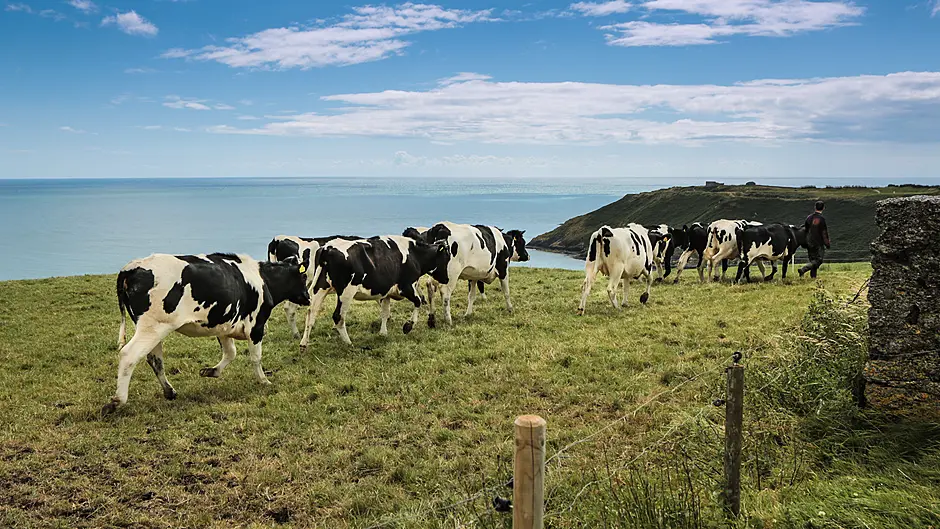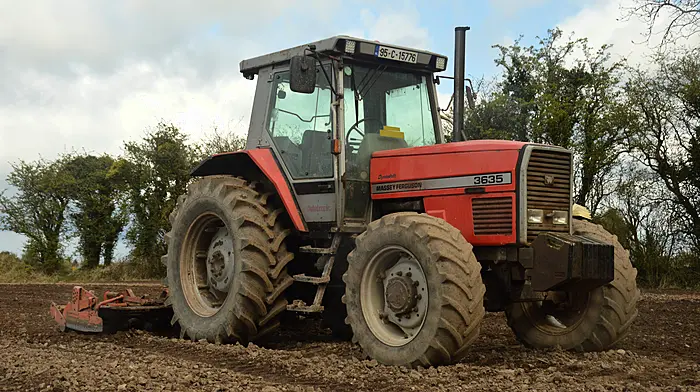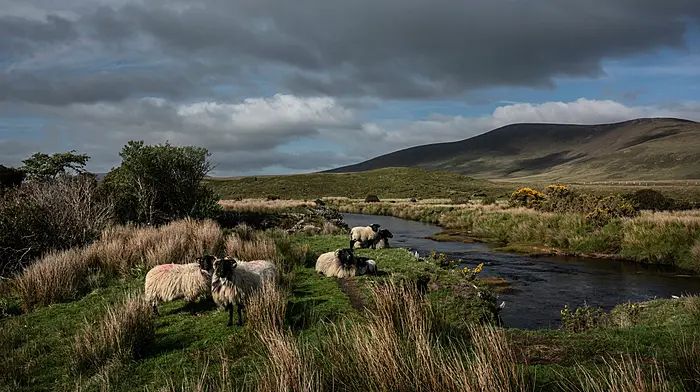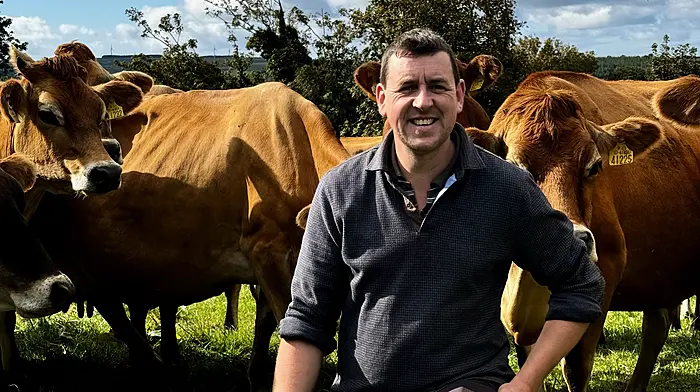IRISH dairy exports were worth €6.3bn in 2024, according to Bord Bia’s Export Performance and Prospects Report published last week.
The value of exports were in line with 2023 declines in the value of milk, cream, milk power, milk protein concentrate, but an increase in the value of butter exports.
The value of meat and livestock exports increased by 6% to €4.3bn. The live export trade was worth €340m, while Increases in the value of beef (€2.8bn), pigmeat (€490m) were driven by higher volumes and higher unit prices.
Sheepmeat and poultry achieved higher unit prices, however overall volumes declined by 23% and 4% respectively.
Whitefish exports fell by 6% to €45m, the report shows Overall, seafood exports recorded a 9% increase to €595m, driven by a recovery in salmon and pelagic volumes.
Freshwater exports were worth €100m, with pelagic fish, such as mackerel, herring and tuna, valued at €145m.
Shellfish exports increased by 4%, reaching €185m.
Value-added seafood exports were worth €105m.
Exports for Irish cereals and horticulture increased by 4% in value and volume terms year-on-year to €325m.
Mushroom exports, which account for half of horticulture exports, increased by 7%, while cereal exports were valued at €90m, down 7% compared to 2023.
The prepared consumer food sector continued its growth trajectory, with exports up 7% in value to reach €3.4bn, with growth across categories including meal solutions, bakery, and carbonated and non-alcoholic beverages.
The ICMSA hailed the record €17bn of exports in 2024 as testament to the ‘hard work and ingenuity of Irish farmers and the food industry’.
ICMSA president Denis Drennan added that the results were even more notable given that 2024 was actually an extremely difficult year for farming.
‘These figures underline the enormous potential of our modern sustainable food sector in Ireland, and it is important that the next Programme for Government acknowledges this potential, sets out measures to develop its potential on a sustainable basis,’
Mr Drennan csaid the EU appears to have changed its approach and is belatedly recognising the importance of sustainable food production and the Irish Government should do the same and allow us to develop a sustainable growth orientated food sector delivering for the Irish economy and family incomes in a way that can attract the next generation of farmers.
Meanwhile Meat Industry Ireland (MII), the Ibec sector association representing primary beef, pork and lamb processing facilities, welcomed the continued strong performance of the Irish meat industry ain the report.
In the past 12 months, the meat and livestock export sectors saw a significant increase of 6% year-on-year, driven by higher volumes and higher unit prices.
Beef exports, including offals, account for 68% of all meat and livestock exports and the value of same rose 6% year-on-year to €2.8bn, with beef offal exports valued at €135m.
In 2024, the value of primary pigmeat exports grew by an estimated 7% to reach €490m, with production expected to recover further in 2025.
Irish sheep meat exports had a more challenging year and faced a 6% decline in value to €400m, primarily due to product availability and challenging weather conditions during the lamb breeding season.
Director of Meat Industry Ireland Dale Crammond, said: ‘In the face of a challenging global market, the Irish meat industry has performed exceptionally well in 2024.
We expect a rise in global demand for the meat sector in the coming year and our members, despite some obvious challenges, are preparing to meet consumer demands in Ireland and overseas.’









